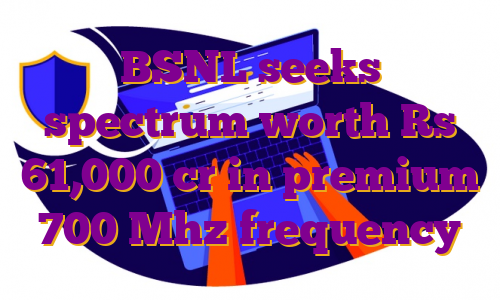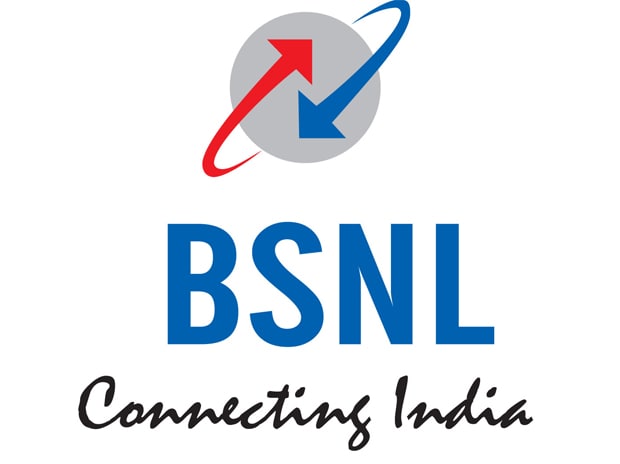State-run BSNL has urged the government to allocate it spectrum worth Rs 61,000 crore in the premium 700 Mhz frequency range as well as the medium frequency band for 4G and 5G services, according to sources.The Department of Telecom (DoT) had proposed to reserve for BSNL 10 megahertz of paired spectrum — which means the same quantum of radiowaves for uplink and downlink — in 600 Mhz band; 40 Mhz in 3600-3670 Mhz band; and 400 Mhz in 24 Ghz band. It had sought views of the Telecom Regulatory Authority of India (Trai) on the same.However, BSNL in a letter to the DoT about a week back asked for allocation of 10 Mhz of spectrum in the 700 Mhz band because of lack of device ecosystem in the 600 Mhz frequency range.Based on the base price recommended by Trai, the value of spectrum sought by BSNL in the 700 Mhz band comes to around Rs 39,000 crore.It has also sought 70 Mhz of spectrum in 3,300 to 3670 Mhz band (the mid-band) worth Rs 22,190 crore, against the 40 Mhz proposed by DoT, as per the letter.This mid-band is expected to play a key role in the rollout of 5G services in the country.The 700 Mhz band is considered premium because it provides wide coverage of mobile signals and least number of telecom towers are required for setting up a network in this band compared to other frequencies allocated to the sector at present.If the government reserves 70 Mhz of spectrum in the mid-band, then a total of 300 Mhz of spectrum will be left for players to bid for in the upcoming auction.According to a government official, private telecom players are expected to buy 100 Mhz of spectrum in the mid-band, which can help them with high-speed 5G services, and it will be sufficient for them even if the government allocated 70 Mhz of spectrum to BSNL.(Only the headline and picture of this report may have been reworked by the Business Standard staff; the rest of the content is auto-generated from a syndicated feed.)
 Dear Reader,
Dear Reader,
Business Standard has always strived hard to provide up-to-date information and commentary on developments that are of interest to you and have wider political and economic implications for the country and the world. Your encouragement and constant feedback on how to improve our offering have only made our resolve and commitment to these ideals stronger. Even during these difficult times arising out of Covid-19, we continue to remain committed to keeping you informed and updated with credible news, authoritative views and incisive commentary on topical issues of relevance.
We, however, have a request.
As we battle the economic impact of the pandemic, we need your support even more, so that we can continue to offer you more quality content. Our subscription model has seen an encouraging response from many of you, who have subscribed to our online content. More subscription to our online content can only help us achieve the goals of offering you even better and more relevant content. We believe in free, fair and credible journalism. Your support through more subscriptions can help us practise the journalism to which we are committed.
Support quality journalism and subscribe to Business Standard.
Digital Editor
!function(f,b,e,v,n,t,s){if(f.fbq)return;n=f.fbq=function(){n.callMethod?n.callMethod.apply(n,arguments):n.queue.push(arguments)};if(!f._fbq)f._fbq=n;n.push=n;n.loaded=!0;n.version=’2.0′;n.queue=[];t=b.createElement(e);t.async=!0;t.src=v;s=b.getElementsByTagName(e)[0];s.parentNode.insertBefore(t,s)}(window,document,’script’,’https://connect.facebook.net/en_US/fbevents.js’);fbq(‘init’,’550264998751686′);fbq(‘track’,’PageView’); .


